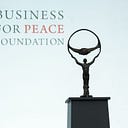The United Nations Guiding Principles on Business and Human Rights: An overview for businesses
June 2021 marked the tenth anniversary of the adoption of the United Nations Guiding Principles on Business and Human Rights (UNGPs). The UNGPs offer a universal template for preventing business-related human rights abuses and addressing them when they occur.
But what exactly are the UNGPs and what expectations do they set for the global business community? On the verge of a new decade of implementation, let’s revisit their role in protecting human rights.
What Are The UNGPs?
The UNGPs are the result of extensive consultation with stakeholders in the business and human rights field carried out by former UN Special Representative, John Ruggie. They build on existing standards and practices for business and States, and outline them in 31 Guiding Principles.
As a whole, these principles articulate the “protect, respect and remedy framework” describing complementary, but clearly differentiated responsibilities for States and business in tackling human rights. This framework is based on three pillars: the State’s duty to protect, the corporate responsibility to respect, and the need to remedy for victims of business-related human rights abuses.
Expectations and due diligence
The UNGPs set a global standard for business behaviour: while States are responsible for protecting and fulfilling human rights, businesses are expected to respect human rights. In practice, this means that businesses should avoid causing or contributing to negative human rights impacts through their activities, and address them when they occur.
Business-related human rights violations are not always obvious. Sometimes they are the indirect result of business activities or happen at different stages in their supply chains. Companies need to identify possible human rights impacts across its operations, products and business networks and address them on an ongoing basis. This, in a nutshell, is human rights due diligence (HRDD).
By implementing HRDD, companies can significantly reduce the risk of contributing to human rights abuses and proactively manage their impact when they occur. HRDD as a risk management process has four clear steps:
- Assessing actual and potential human rights impacts
- Integrating and acting on the findings
- Tracking responses
- Communicating about how impacts are addressed
Commitment and Best Practices
In addition to HRDD, there are two key components of the responsibility to respect human rights under the UNGPs. First businesses are expected to “know and show” that they respect human rights. In practical terms, this means that companies should have a policy in place where they outline their commitment to respect human rights both internally and throughout their operations.
Despite their best efforts, completely unforeseen and unpreventable circumstances can happen and even the most committed companies can negatively impact human rights. For that reason, it is fundamental that businesses have processes in place to remedy these impacts when they occur.
In the last 10 years, leading companies have adopted and integrated the UNGPs in their business activities. One example of best practices is Committed to Good (CTG), led by Alice Laugher, Business for Peace Honouree in 2019. CTG counts with a Human Rights Policy that highlights their commitment to respect and support internationally recognised human rights in alignment with the UNGPs. To put this policy into practice and comply with this commitment, CTG has integrated in their management system checks and balances processes supervised by a Good Governance and an Ethics Committee. This last one oversees compliance across CTG operations and investigates reported claims and unethical behaviour.
What comes next
In the last 10 years, the UNGPs have become the reference framework for businesses around the world and clarified their roles and expectations around human rights. More governments are introducing compulsory human rights due diligence and society at large expects more than ever that companies not only respect human rights but take a leading role in addressing some of the world’s biggest challenges. However, there is still a long way ahead.
A major challenge facing this new decade is scaling the adoption and implementation of the UNGPs by 2030. The UN Working Group on Business and Human Rights is in charge of supervising its implementation, but cannot enforce the adoption or commitment to the UNGP’s. There is still room for improvement, particularly an increased compromise from companies to cooperate in remedy processes when human rights abuses take place.
Do you want to learn more about the UNGPs?
For more information about the UNGPs check out these websites:
